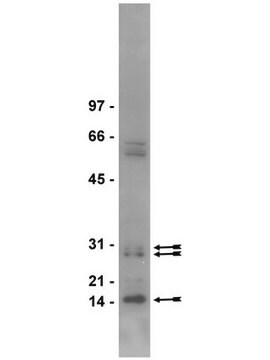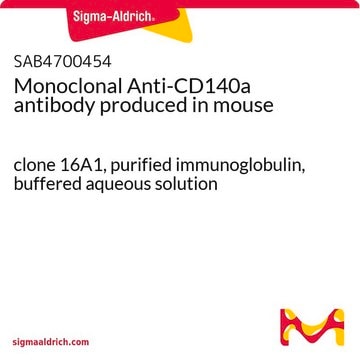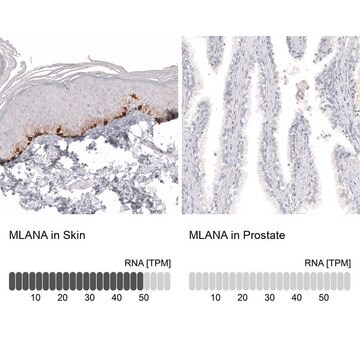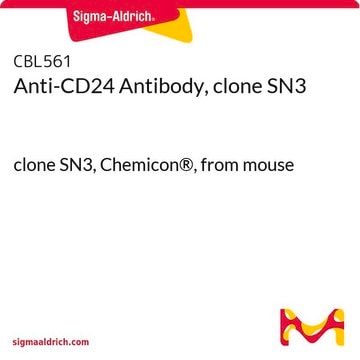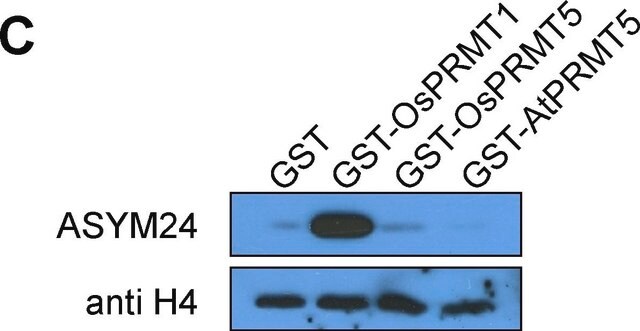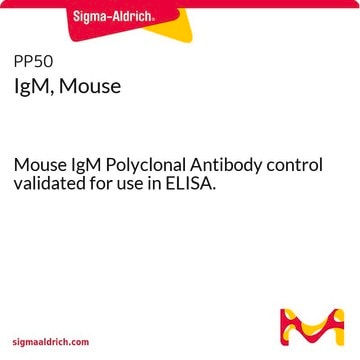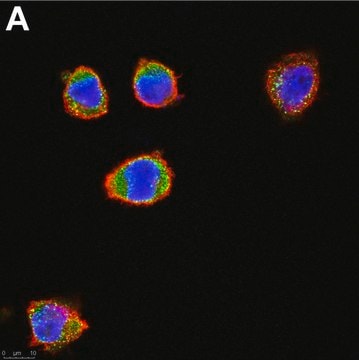MABF2793
Anti-Smith Antigen Antibody, clone Y12
About This Item
Productos recomendados
biological source
mouse
Quality Level
conjugate
unconjugated
antibody form
purified antibody
antibody product type
primary antibodies
clone
Y12, monoclonal
mol wt
calculated mol wt 25 kDa
observed mol wt ~25 kDa
purified by
using protein G
species reactivity
human, mouse
packaging
antibody small pack of 100 μL
technique(s)
immunohistochemistry (formalin-fixed, paraffin-embedded sections): suitable
immunoprecipitation (IP): suitable
western blot: suitable
isotype
IgG3κ
UniProt accession no.
shipped in
2-8°C
target post-translational modification
unmodified
General description
Specificity
Immunogen
Application
Evaluated by Western Blotting in HCT116 cell lysate.
Western Blotting Analysis: A 1:500 dilution of this antibody detected Smith Antigen in HCT116 cell lysate.
Tested Applications
Western Blotting Analysis: A 1:500 dilution from a representative lot detected Smith Antigen in Caco-2 cell lysate.
Immunocytochemistry Analysis: A representative lot detected Smith Antigen in Immunocytochemistry (dos Santos, N.R. et al. (1997). Hum Mol Genet. 6(9): 1549-58).
Western Blotting Analysis: A representative lot detected Smith Antigen in Western Blotting applications (Naro, C. et al. (2019). Cell Rep. 26(11): 2929-2941; Somarelli, J.A., et al. (2011). Lupus. 20(3): 274-89; Brahms, H. et al. (2000). J Biol Chem. 275(22): 17122-9).
RNA Binding Protein Immunoprecipitation (RIP): A representative lot detected Smith Antigen in RNA Binding Protein Immunoprecipitation applications (Naro, C. et al. (2019). Cell Rep. 26(11):2929-2941).
Immunohistochemistry (Paraffin) Analysis: A 1:250 dilution from a representative lot detected Smith Antigen in human tonsil tissue sections.
ELISA Analysis: A representative lot detected Smith Antigen in ELISA applications (Zhou, Y, et al. (2017). J Immunol. 198(5):1846-1854).
Immunohistochemistry Applications: A representative lot detected Smith Antigen in Immunohistochemistry applications (Mirra, A., et al. (2017). Sci Rep. 7(1):2033).
Immunoprecipitation Analysis: A representative lot immunoprecipitated Smith Antigen in Immunoprecipitation applications (Learner, E.A., et al. (1981). Proc Natl Acad Sci USA. 78(5):2737-41; Naro, C. et al. (2019). Cell Rep. 26(11): 2929-2941; Mirra, A., et al. (2017). Sci Rep.;7(1): 2033; Fischer, U. et al. (1997). Cell. 90(6):1023-9).
Radioimmunoassay: A representative lot detected Smith Antigen in Radioimmunoassay applications (Learner, E.A., et al. (1981). Proc Natl Acad Sci USA.;78(5):2737-41).
Immunofluorescence Analysis: A representative lot detected Smith Antigen in Immunofluorescence applications (Learner, E.A., et al. (1981). Proc Natl Acad Sci USA.78(5):2737-41; Mirra, A., et al. (2017). Sci Rep. 7(1):2033).
Note: Actual optimal working dilutions must be determined by end user as specimens, and experimental conditions may vary with the end user
Physical form
Storage and Stability
Other Notes
Disclaimer
¿No encuentra el producto adecuado?
Pruebe nuestro Herramienta de selección de productos.
Storage Class
12 - Non Combustible Liquids
wgk_germany
WGK 1
flash_point_f
Not applicable
flash_point_c
Not applicable
Certificados de análisis (COA)
Busque Certificados de análisis (COA) introduciendo el número de lote del producto. Los números de lote se encuentran en la etiqueta del producto después de las palabras «Lot» o «Batch»
¿Ya tiene este producto?
Encuentre la documentación para los productos que ha comprado recientemente en la Biblioteca de documentos.
Nuestro equipo de científicos tiene experiencia en todas las áreas de investigación: Ciencias de la vida, Ciencia de los materiales, Síntesis química, Cromatografía, Analítica y muchas otras.
Póngase en contacto con el Servicio técnico